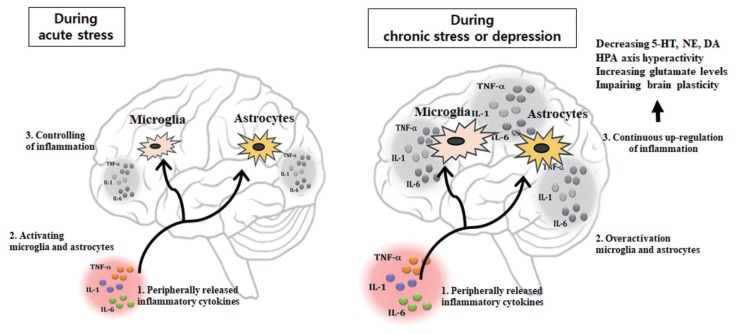Fig. 1.
Peripherally released pro-inflammatory cytokines may reach the brain where they drive neuroinflammation by activating microglia and astrocytes modulate brain areas involved with mood regulation, and, notably, reducing brain monoamine levels, activating neuroendocrine responses, promoting excitotoxicity (increased glutamate levels), and impairing brain plasticity. 5-HT, serotonin; NE, norepinephrine; DA, dopamine; HPA, hypothalamus-pituitary-adrenal; TNF-α, tumor necrosis factor-α; IL, interleukin.

